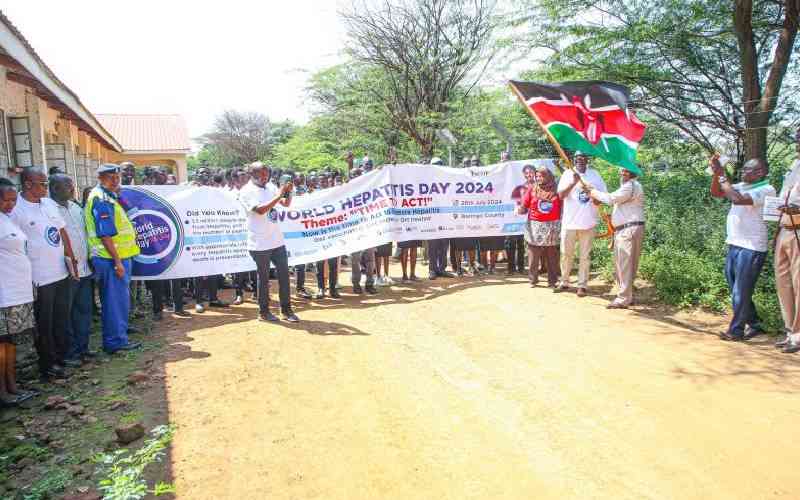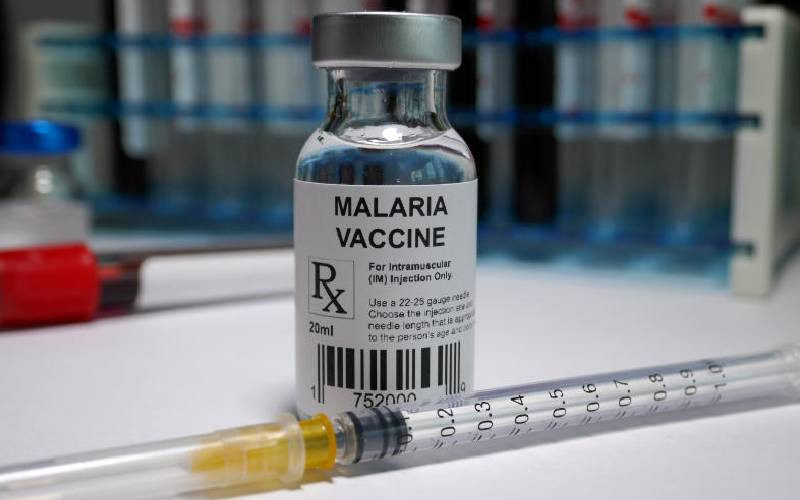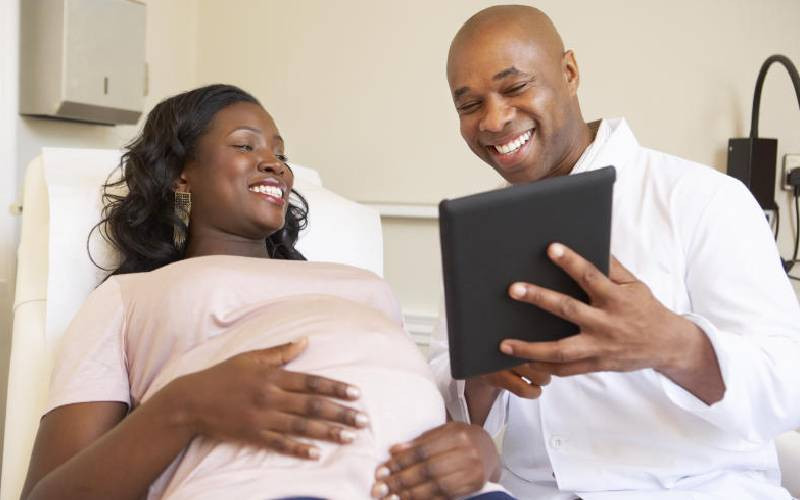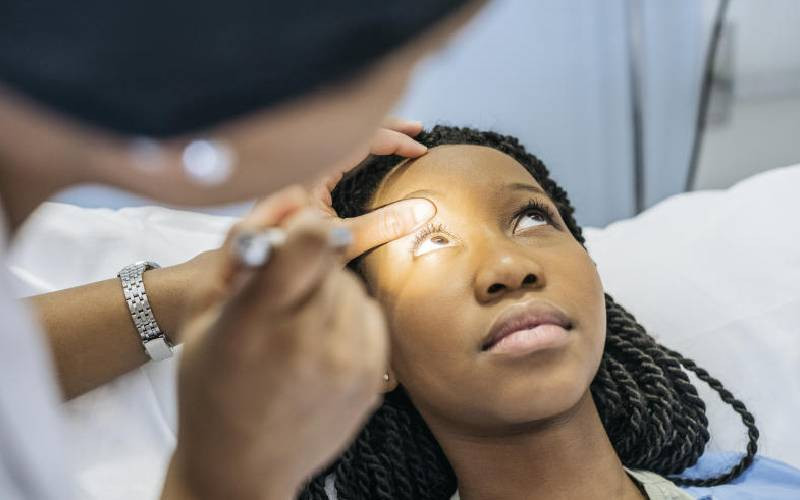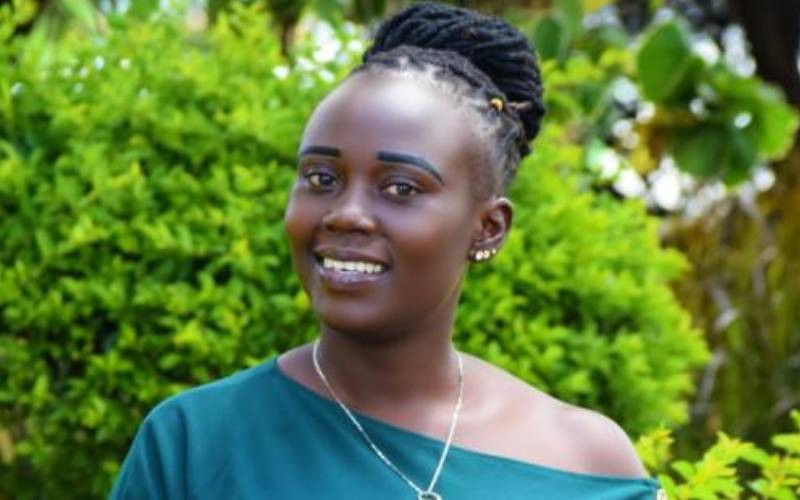
In the quiet depths of existence, where pain and perseverance intertwine, resides the tale of Beryl Akinyi, 34, from Kisumu County who has been battling with a chronic disorder for the past six years.
The struggle began in September 2018 when Beryl experienced what she was told was 'frequent malaria' that was not responding to drugs.
She visited several hospitals complaining of fatigue and fever that led to convulsions but nothing worked. One of the medics suggested she should go for further examination in a different facility since he suspected something else was wrong.
"At the facility in Kisumu, I was admitted for four days and doctors recommended I go through a scan to help diagnose what was ailing me," Beryl says.
The scan results showed that she had an ovarian cyst (a fluid-filled sac that can develop in or on the ovaries) that was the size of a child's head.
"They said it could only be removed through surgery. I had no choice but to accept their recommendation. I was nervous but went through with the first surgery," Beryl recalls.
"After the surgery, which took several hours, they told me that I had lost a left ovary and both fallopian tubes. I was shocked," she narrates. "Later on, when they told me that I had endometriosis, it felt like a nightmare. At the time, I didn't know what endometriosis was because I didn't know anyone who had it," she says.
According to Dr Sauda Farooqui, an Obstetrician Gynaecologist at The Nairobi West Hospital, endometriosis is a condition where the endometrial tissue that normally forms the lining inside the uterus is also found outside of the uterus.
- Uterine growths can give you bad shape and cause kidney failure
- How fibroids deny many women motherhood
- Lupita's battle with fibroids: What every woman should know
- Fear and shame leave girls struggling with periods
Keep Reading
Endometriosis affects roughly 10 per cent (190 million) of reproductive-age women and girls globally according to the World Health Organization (WHO).
In addition, the American Society for Reproductive Medicine found that 24-50 per cent of women with infertility have endometriosis.
"Painful and heavy menses, prolonged bleeding, painful sex, back pain, painful defecation, especially during menses, are major signs that are connected with this condition," says Dr Farooqui. "A point to note is that a third of the women with endometriosis may not have any symptoms."
According to the Endometriosis Treatment Centre of America, endometriosis can fall in four stages; Stage 1 - minimal, Stage 2 - mild, Stage 3 - moderate and Stage 4 - severe. However, the disease does not necessarily progress neatly from one stage to the next, and doctors aren't sure why some women have more severe cases than others.
Upon diagnosis, Beryl was told that her endometriosis, which was in Stage 1 and advancing to Stage 2.
"I was told by medics that there is no complete cure for this condition but, through surgeries, one can manage the signs and live a normal life. Since then, I have been through seven surgeries. The endometriosis got to the point where it had affected my kidneys," she explains.
When the information reached Beryl's family, they were very sad but they came to understand more about the condition and accepted the situation.
"Since I was married, I thought my illness would affect my marriage but God came in and, my husband, who is a good young man, has been supportive to date -- he neither isolated nor rejected me," she says.
After the diagnosis, Beryl was sure that she had to forget about becoming pregnant and having children but she later found out that there was hope.
"Yes, one ovary and both my fallopian tubes were removed but medics tested me and ruled that I could get pregnant but not in a natural way like other people. The fact is I am still fertile and I'm happy about that, " Beryl says.
Dr Farooqui explains that endometriosis can lead to the formation of adhesions and this, in turn, may lead to infertility.
"It also causes hormonal imbalance which may contribute to infertility. Another theory is that endometriosis may affect implantation," she says.
Beryl says that, because of the infertility, she has lost friends and faced rejection and depression.
"When I was diagnosed with this condition, I had no child and still I don't have one," she says.
She says that apart from the stigma of infertility, she also faces rejection from people who believe that her condition came about due to a curse.
"This is a lie. This is a condition that can attack anyone, any time," Beryl says adding that another struggle is the constant pain and bleeding.
"I have been bleeding for long. It's now three months. Pain during intercourse is also my threat. I have never enjoyed sex since 2018. Flare-ups and bloating are part of my life. I can't just wear whatever I want, " Beryl explains.
"I am tired of the pain. I just want it to stop. Back pain, loss of appetite, weight loss, nausea, painful menses, longer menstrual days, and loss of hair are the top uncomfortable and disgusting signs that I live with," she says.
Despite the constant discomfort, Beryl says she pushes herself to live a normal life.
"The backaches are doing me an injustice but I found a solution in the gym and swimming. I feel tired after working out for a few minutes but I keep pushing myself," she says. "I have hope that one day I will be okay and can live a normal life. I desire to have kids who can call me 'mum'. That will be my joy."
"My message to other patients struggling with the same condition is that finding what makes you happy is key to controlling pain and managing pain," she adds.
Dr Farooqui says there are no preventive measures for this disease and the treatment of symptoms varies from patient to patient.
"This disease subsides after menopause so medications that will mimic menopause can help, combined oral contraceptive pills and Visanne (hormonal drug indicated for the treatment of endometriosis), and lastly surgery," she says.
She advises women who have painful periods to shun the misconception that pain during menses is normal and look for a gynaecologist to assess and determine the cause of the pain.
"In Kenya, there have been recent campaigns to create awareness, but more can be done to silence this condition. Involvement of social media is crucial," Dr Farooqui says.
 The Standard Group Plc is a multi-media organization with investments in media
platforms spanning newspaper print
operations, television, radio broadcasting, digital and online services. The
Standard Group is recognized as a
leading multi-media house in Kenya with a key influence in matters of national
and international interest.
The Standard Group Plc is a multi-media organization with investments in media
platforms spanning newspaper print
operations, television, radio broadcasting, digital and online services. The
Standard Group is recognized as a
leading multi-media house in Kenya with a key influence in matters of national
and international interest.

